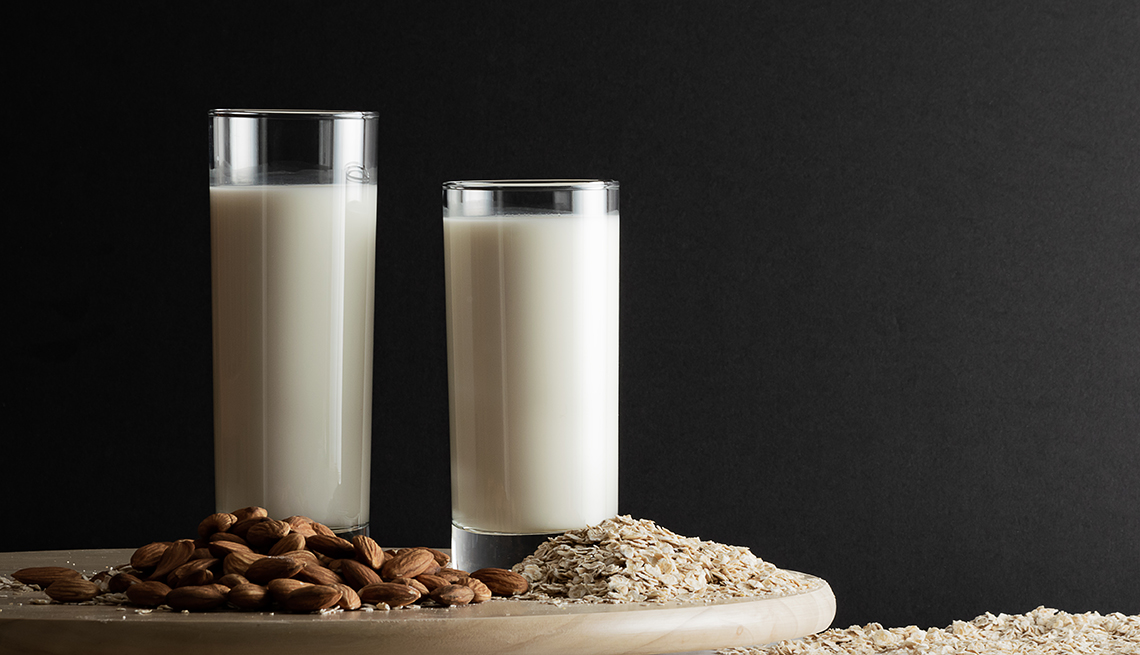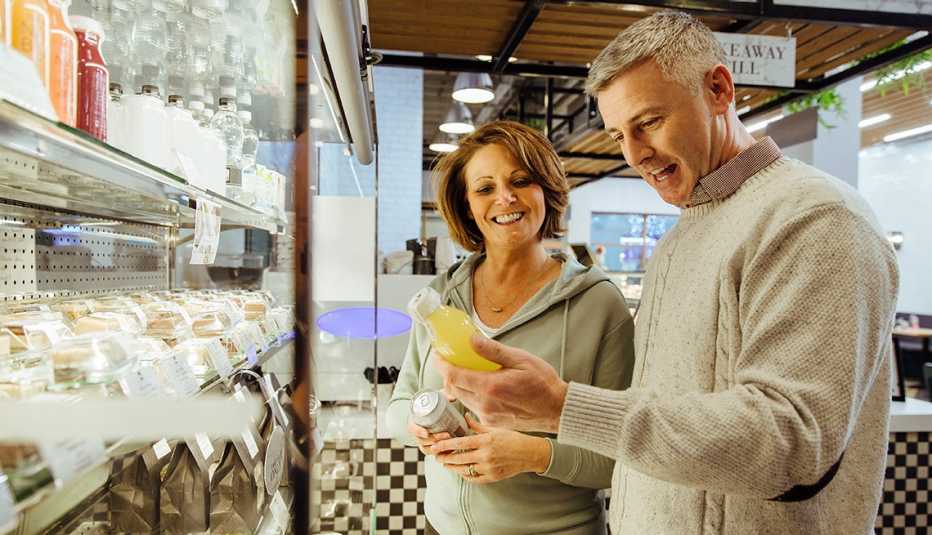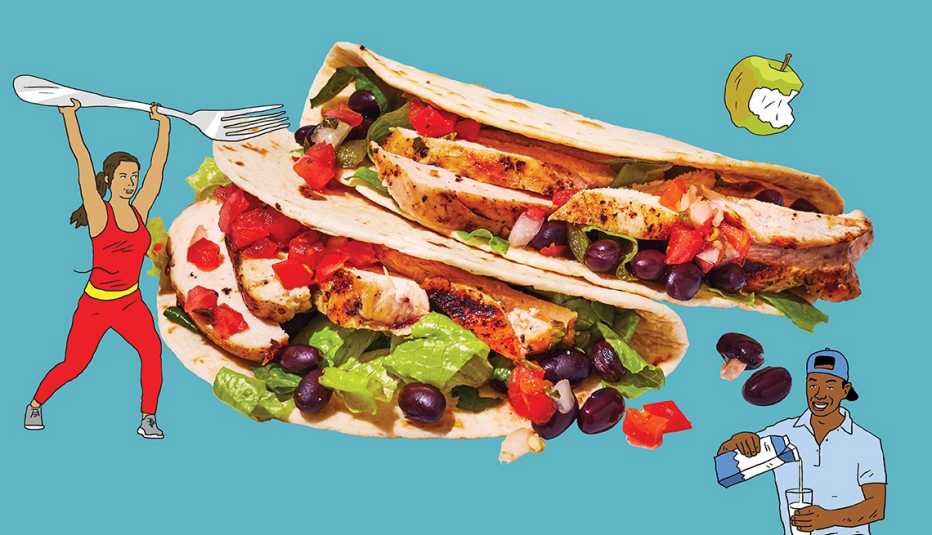Staying Fit
Plant-based milks are a growing alternative to dairy options, with varieties expanding beyond the most popular, almond milk.
Nondairy milks are attractive to those who are lactose intolerant (a condition that affects people as they age) or allergic to the typical dairy offerings, as well as to vegans, who eschew all dairy products.


AARP Membership— $12 for your first year when you sign up for Automatic Renewal
Get instant access to members-only products and hundreds of discounts, a free second membership, and a subscription to AARP the Magazine.
Many people become lactose intolerant as they get older because the enzyme lactase, which converts milk into milk sugar, diminishes. This tends to send milk drinkers looking for an alternative that won't cause gas, bloating, indigestion or other gastric problems, says Robyn Goldberg, a registered dietitian nutritionist based in Los Angeles and author of The Eating Disorder Trap.
And though almond milk was the first alternative to gain popularity, thanks to a large marketing push by suppliers, oat milk — only introduced in the United States in 2018 — is cutting into its business, experiencing the greatest sales increase, compared with competitors, in the past year, says Tabitha Sewell, category manager of dairy, nondairy and refrigerated beverages at KeHE, a grocery distributor.
How Oat Milk and Almond Milk Are Made
Oat milk is made by soaking rolled oats in water, blending the mixture at a high speed and then putting the milk through a strainer. Flavoring, such as vanilla extract, cocoa or cacao powder, or berries can be added to change its taste, and oil is often added as a fat element.
Oatly!, one of the top-selling oat milk brands, says that it adds an ingredient called dipotassium phosphate, an acidity regulator to keep the milk from separating when heated.
Almond milk is made in a similar way: soaking, blending, straining and adding extra flavors. You can also turn almond butter into almond milk just by adding water. A caution for the environmentally conscious: Compared with oat milk, almonds require much more water to grow, which puts a strain on natural resources.
In 2019, “Other and Blends,” a milk distribution category, neared $400 million in sales and 54 percent growth, with oat milk making up the majority of those sales, Sewell says.
Although the number of alternatives on the market may seem unlimited (coconut, soy, rice, hemp, among them), dairy milk still reigns supreme, with $16 billion in sales. Altogether, other alternatives sold under $5 billion. But sales of dairy milk are forecast to drop by some $3 billion by 2025 as more people choose other options, according to Sewell. “Almond will continue to be a huge segment of the category, but oat is quickly becoming the second-largest base type in the U.S.” Almond did $1.3 billion in sales, making up 61 percent of the alternative-milk market.
We asked the experts to break down the nutritional benefits of popular alternatives.
Oat milk vs almond milk
Although both oat and almond milks are lactose-free, almond is a good option for people with diabetes or those looking to cut carbs from their diet.



































































